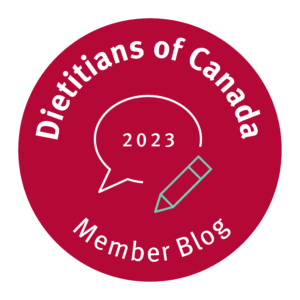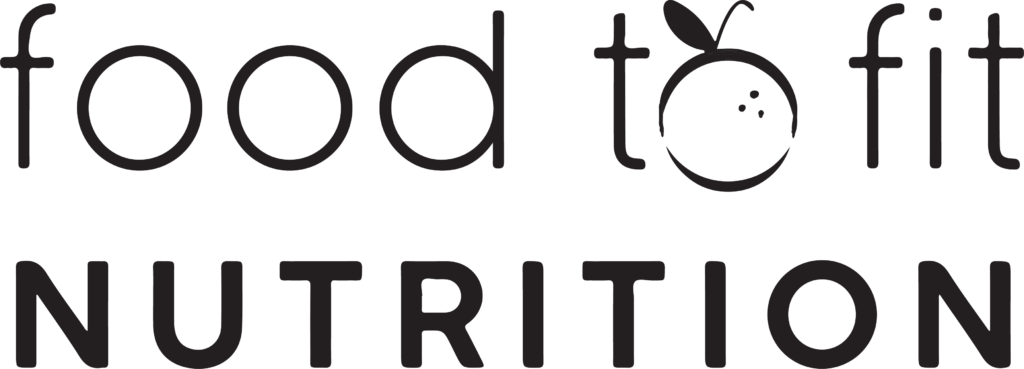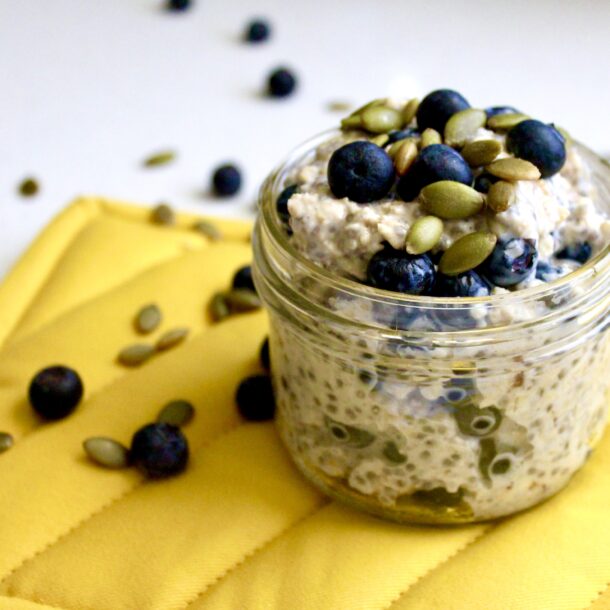
Food, Brain, and Mood Connection
If you think about it, the brain is always working.
Submitted by Keara Lubchenko, Nutrition Practicum Student; Edited by Brooke Bulloch, RD
Even when we are sleeping, the brain is functioning to help control things like breathing and heartbeat. This means that our brain requires a constant amount of energy to keep working. This energy comes from the foods we eat which can also affect the structure and function of our brain cells, thus food has a direct relationship to mood. As dietitians, we help clients to incorporate a variety of vitamins, minerals, antioxidants, and carbohydrates to nourish the brain. This has a positive effect on day-to-day mood, and mood disorders such as anxiety and depression.
Here are 4 ways that food, the brain, and mood are connected:
1. The Tryptophan - Brain Connection
The gastrointestinal tract produces 95% of the neurotransmitter (a hormone) serotonin, which acts as a mood stabilizer and booster. To make serotonin, we need an essential amino acid called tryptophan. Our gut microbes obtain tryptophan from food in order to produce serotonin, and the amount of tryptophan that we eat influences how much serotonin is made by the body.
Studies suggest that lower consumption of tryptophan may be associated with mild to moderate depression in older adults. However, it’s not as simple as supplementing tryptophan for prevention and treatment of mood disorders (2). Instead, it appears that consuming tryptophan through food is key.
Foods That Contain Tryptophan
Tryptophan can be found in most protein foods such as:
- Nuts and seeds (particularly cashews, pistachios, and almonds)
- Tofu
- Cheese
- Meat (particularly turkey, chicken, and pork)
- Fish
- Beans (e.g. kidney beans, black beans, or navy beans)
- Lentils
How Much Tryptophan to Consume?
Research suggests that consuming between 250-425mg tryptophan per day supports adequate serotonin production (1). Aim for a variety of protein sources throughout your day, ideally one serving at each meal and snack to meet tryptophan needs.
2. The Antioxidant - Brain Connection
Antioxidants protect cells from damage caused by “waste” produced when the body uses oxygen. This process is known as oxidative stress. Oxidative stress may play a role in the development of cancer, heart disease, or depression.
The Role of Antioxidants on Neurons
Brain cells are also prone to oxidative stress and damage, and studies show oxidative stress levels are increased in individuals with depression (3). A diet high in antioxidants protects the cells in our brain from damage, which may reduce the risk of anxiety and depression.
Antioxidants include vitamins and minerals such as vitamin C, vitamin E, beta-carotene, and selenium.
Foods that Contain Antioxidants
- Vegetables
- Fruit
- Whole grains
- Brazil nuts
- Other nuts and seeds
How Much Antioxidant Foods to Consume?
There is currently no daily recommended intake of antioxidants. As a general guide, aim for 5 servings of vegetables and fruit per day, and a variety of the foods listed above each week. Being consistent in consuming antioxidant foods will be beneficial to mental health.
3. Food and the Hypothalamic-Pituitary-Adrenal Axis (HPA) Connection
The HPA axis includes the hypothalamus, pituitary, and adrenal glands. It functions to help manage reactions to stress, and regulate mood, emotions, digestion, energy storage, and the immune system. Inflammation can cause increased levels of stress hormones such as cortisol, which is associated with a disruption to the HPA axis. This is linked to anxiety and depressive disorders, and some research suggests more than 60% of people with depression show elevated cortisol levels (4).
How Can Food Help?
Certain nutrients can influence the HPA axis by lowering cortisol levels, including:
- Vitamin C
- Omega 3 fatty acids
- Polyphenols
Food Sources of Vitamin C
- Citrus fruits such as oranges, lemon, and grapefruit
- Strawberries
- Kiwi fruit
- Bell peppers
- Tomatoes
Food Sources of Omega-3 Fatty Acids
- Fish and seafood
- Canola oil
- Flaxseed (oil or ground seeds)
- Chia seeds
- Hemp hearts
- Walnuts
- Soybeans (e.g. edamame beans, tofu, or tempeh)
Food Sources of Polyphenols
Polyphenols are non-nutrient compounds found in plants. For example:
- Olive oil
- Sesame oil
- Cocoa and dark chocolate
- Soybeans
- Flaxseed
- Mangosteen
4. The Carbohydrate - Brain Connection
Carbohydrates support optimal brain function and mood in four ways:
- Carbohydrates are the preferred source of energy for the brain and help the brain to function optimally. Low carbohydrate intake can contribute to mental fatigue and brain fog because the brain cannot store carbohydrates for future use. Thus, the brain needs a continuous supply throughout the day.
- Carbohydrates play a role in blood sugar management. When carbohydrate intake falls and blood sugars drop, mood can become more irritable, and anxiety can increase. Fibre-rich carbohydrates provide more sustainable energy by slowing digestion, which prevents drastic spikes and drops in blood sugar (5).
- Carbohydrates help to lower cortisol (stress-induced hormone). Studies show that a diet adequate in carbohydrates reduces cortisol and negative mood after stress (6). A diet NOT adequate in carbohydrates leads to stress-inducing effects.
- Carbohydrates affects how well we sleep. Studies have shown that adequate carbohydrate intake can positively affect sleep initiation, continuation, and prolonged rapid eye movement (REM) compared to low carbohydrate consumption (7). REM is important because it is involved with memory, emotional processing, and healthy brain development. When the brain doesn’t receive optimal rest, mood is negatively affected (8).
Food Sources of Fibre-Rich Carbohydrates
- Vegetables and fruit
- Whole-grain breads or soft tortilla wraps
- Quinoa
- Potatoes with the skin on
- Sweet potato
- Gluten-free whole grains like wild rice, millet, corn, and buckwheat
- Beans and lentils
Aim to include a variety of carbohydrate foods throughout the day, choosing fibre-rich sources often. Pair carbohydrate foods with protein for further meal/snack satisfaction, and improved blood sugar management.
Evidence suggests eating a variety of foods and nutrients helps fuel the brain and supports mood and mental health through neurons, gut bacteria, the HPA axis, and carbohydrates. While this post shares a number of foods being recommended as part of a strategy to manage mood, they are not recommended as a cure-all for mood disorders. If you’re struggling with mental health, reach out to a health care provider. For more information or support with nutrition planning related to your mental health, meet with our team social worker, Monique Roy, or with one of our team dietitians.
References:
(2) Richard, D. M., Dawes, M. A., Mathias, C. W., Acheson, A., Hill-Kapturczak, N., & Dougherty, D. M. (2009). l-tryptophan: Basic metabolic functions, behavioral research and therapeutic indications. International Journal of Tryptophan Research, 2. https://doi.org/10.4137/ijtr.s2129
(3) Chojnacki, C., Popławski, T., Chojnacki, J., Fila, M., Konrad, P., & Blasiak, J. (2020). Tryptophan intake and metabolism in older adults with mood disorders. Nutrients, 12(10), 3183. https://doi.org/10.3390/nu12103183
(4) Black, C. N., Bot, M., Scheffer, P. G., Cuijpers, P., & Penninx, B. W. J. H. (2015). Is depression associated with increased oxidative stress? A systematic review and meta-analysis. Psychoneuroendocrinology, 51, 164–175. https://doi.org/10.1016/j.psyneuen.2014.09.025
(5) Mahoney, S. (2021, April 15). Looking through the lens at how food can improve our mood. Food and Mood Centre. Retrieved April 6, 2022, from https://foodandmoodcentre.com.au/2021/04/looking-through-the-lens-at-how-food-can-improve-our-mood/
(6) Bda. (n.d.). Food and mood. Food and mood | British Dietetic Association (BDA). Retrieved April 7, 2022, from https://www.bda.uk.com/resource/food-facts-food-and-mood.html
(7) Soltani, H., Keim, N. L., & Laugero, K. D. (2019). Increasing dietary carbohydrate as part of a healthy whole food diet intervention dampens eight week changes in salivary cortisol and cortisol responsiveness. Nutrients, 11(11), 2563. https://doi.org/10.3390/nu11112563
(8) Vlahoyiannis, A., Giannaki, C. D., Sakkas, G. K., Aphamis, G., & Andreou, E. (2021). A systematic review, meta-analysis and meta-regression on the effects of carbohydrates on sleep. Nutrients, 13(4), 1283. https://doi.org/10.3390/nu13041283
Related Articles
LET'S STAY IN TOUCH
Join our mailing list
Join our newsletter for more non-diet content including practical nourishment, recipes, nutrition myth-busting, and weight inclusive well-being.
Curiosity, self-compassion, food peace. Nutrition assessment, planning, and monitoring + food relationship counseling.
Food to Fit Locations:
#203, 2445 Broad Street
Regina, Saskatchewan
1124 8th Street East
Saskatoon, Saskatchewan

